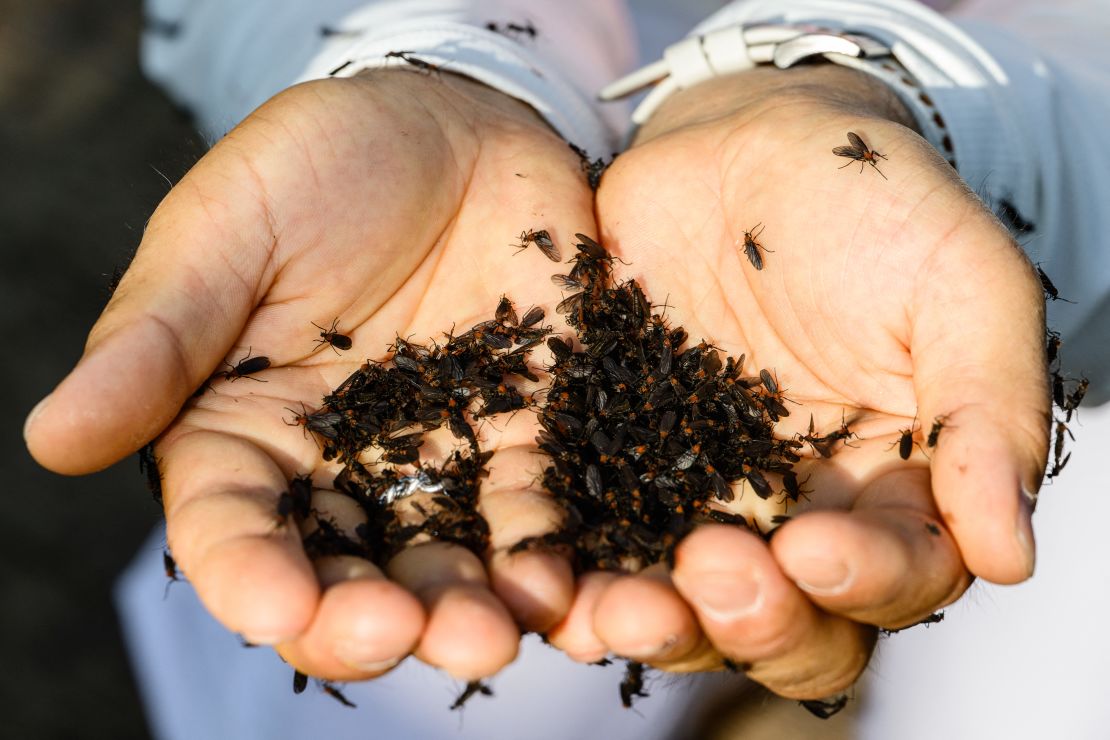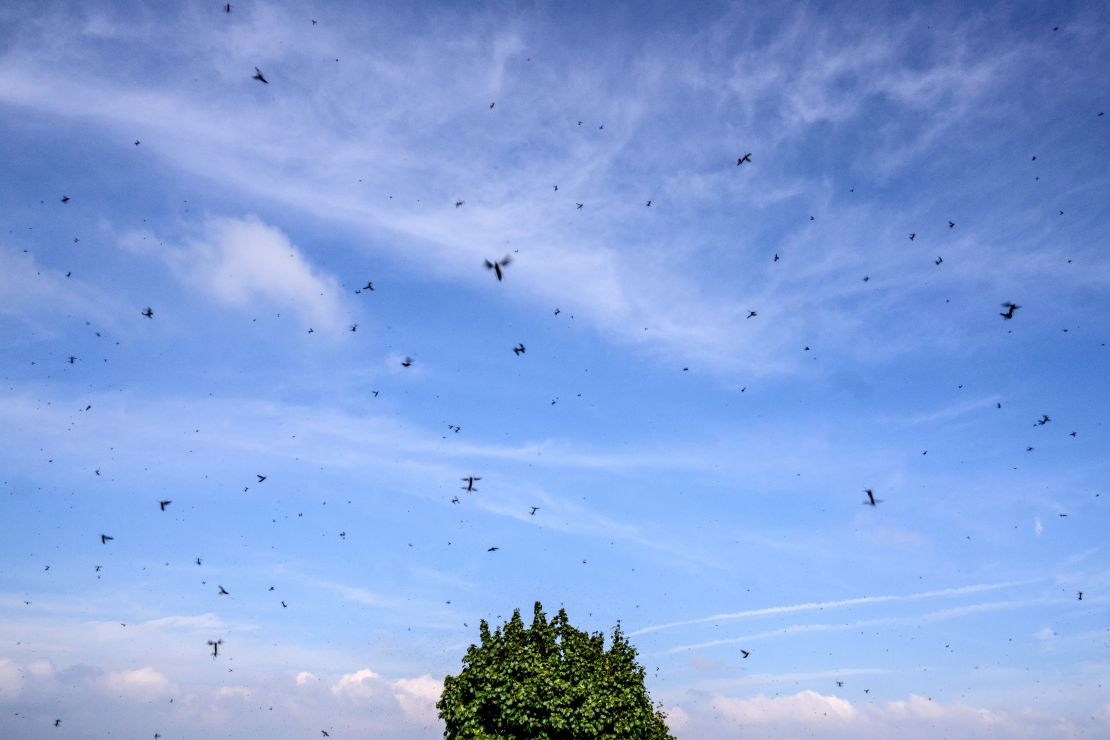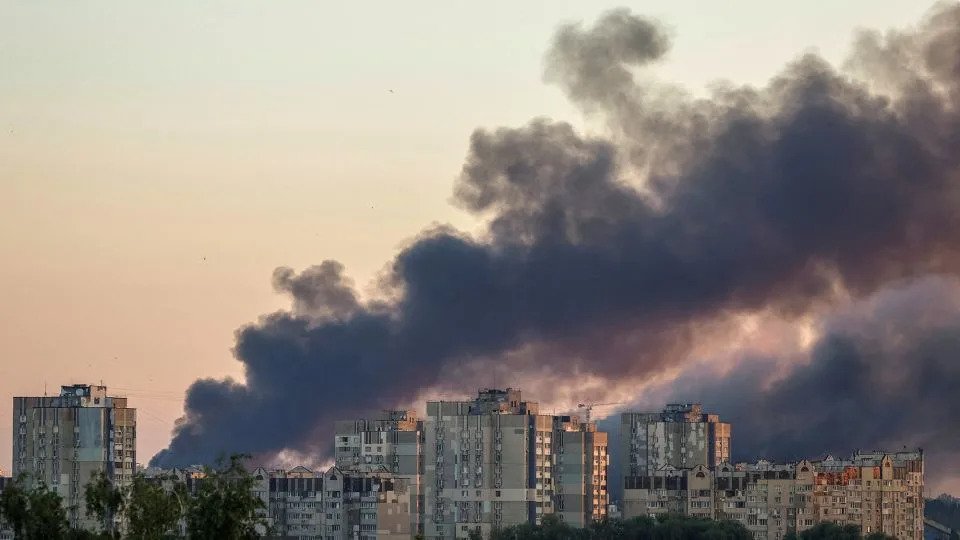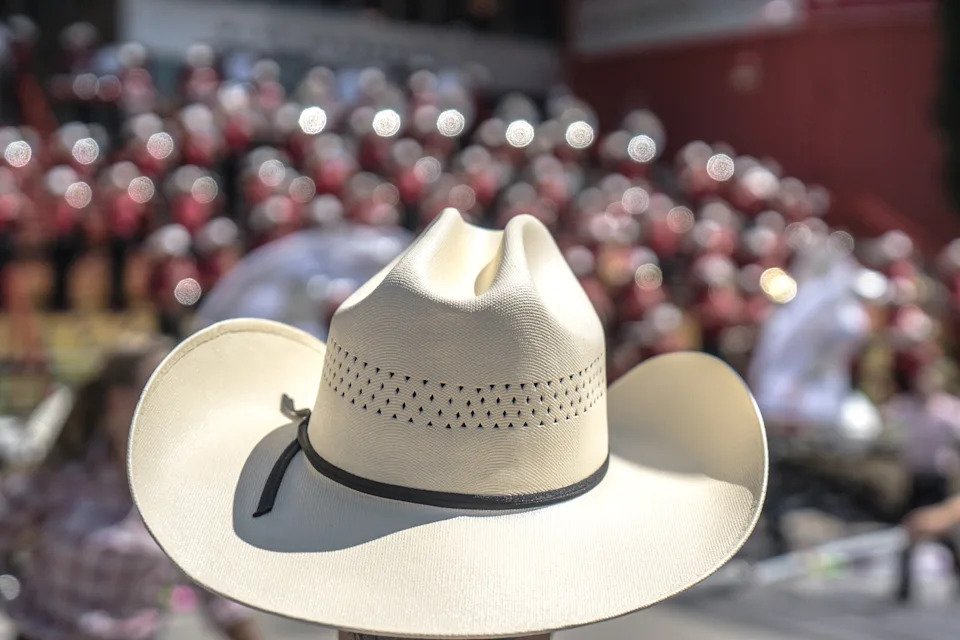CNN
—
South Korea has recently been hit by another surge of lovebugs.
But romance is certainly not in the air for residents of Seoul and neighboring Incheon city, who have been plagued by these pesky insects in recent weeks, as rising temperatures due to climate change spur their spread.
On Friday, dozens of government workers were sent to Gyeyangsan, a mountain west of the capital, to manage an “extremely severe outbreak,” the country’s environment ministry said in a statement.
Videos on social media earlier this week showed scenic hiking trails along the peak transformed into buzzing corridors of chaos.
Footage shows hikers thrashing through swarms of thumbnail-sized bugs, with one person engulfed by the black-winged creatures and another scooping thousands of tiny carcasses from the trail.
In a YouTube video, a man collected thousands of the insects and took them home to make them into hamburgers, which he then appeared to eat.

Lovebugs, known scientifically as Plecia longiforceps, get their nickname from their mating behavior when they fling into each other while flying.
They are found in the subtropics including southeastern China, Taiwan, and Japan’s Ryukyu Islands. They also occur in parts of Central America and the southern United States, including Texas and Florida.
First detected in South Korea in 2015, they are believed to have arrived there from southern China, according to the environment ministry. Since 2022, they have appeared in and around Seoul, particularly port areas, between June and July, it added.
Experts say climate change and warming temperatures are helping drive lovebugs northward into areas such as Seoul and Incheon.
While global warming is a planet-wide issue, scientists have identified Seoul as an area where temperatures are rising at a faster pace than in other parts of the world.
This is worsened by the city’s heat-island effect, where temperatures are much higher than in nearby rural areas due to man-made structures absorbing and holding more heat.
“With climate change increasing ecological instability, we must remain vigilant throughout the summer,” Kim Tae-o, director of the environment ministry, said.
Lovebugs do not transmit diseases or sting humans. However, there have been increasing public complaints about them sticking to car windows and the walls of houses, restaurants and subway trains.
So far, officials have advised local workers and residents to combat swarms by spraying water or using sticky pads instead of chemical pesticides.
Populations are expanding in the northwest of South Korea, however any further potential spread remains unknown.
“Compared with the past two years, the number of lovebugs sharply surged last weekend at the mountain,” Gyeyang district official Wang Hyeon-jeong said on Tuesday.
Areas with a warm, humid climate could attract them, being favorable conditions for their survival and reproduction.

The city government of Seoul views the lovebugs as “ecologically beneficial,” posing no health risk to humans and helping pollinate flowers as their larvae convert plant materials into organic components.
However, local media reports that complaints to the city have more than doubled, increasing from 4,418 in 2023 to 9,296 last year, according to the Seoul Metropolitan Government.
On Friday, environment ministers agreed to strengthen and invest more in response procedures after the latest outbreak, which it described as “extremely severe.”
“We will closely monitor the situation and work with local authorities from the early stages of any outbreak,” Kim said.
But natural population control is reportedly setting in, as birds such as sparrows and magpies learn to eat the bugs, causing their numbers to fall.








